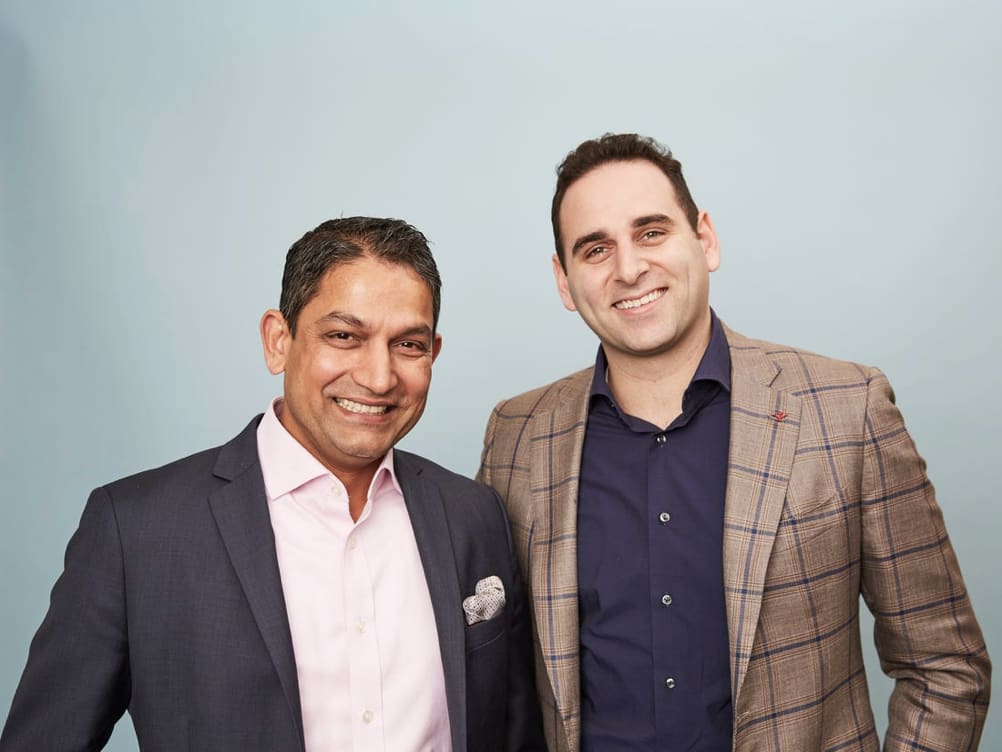Alternative investments platform Yieldstreet raises $100 million amid pandemic growth

Yieldstreet co-founders Milind Mehere (L) and Michael Weisz
Source: Yieldstreet
Alternative investments platform Yieldstreet — which is aiming to democratize private investing opportunities historically reserved for the top 1% — announced Wednesday a $100 million series C funding round.
For the last six years, New York-based start-up Yieldstreet has been giving its users access to a category of deals that had previously been the domain of institutions like hedge funds or billionaires’ family offices.
Since returning over $960 million dollars to investors since it started six years ago, Yieldstreet has lowered minimum investment entry points — some as low as $1,000 — and grown its diversity of alternative asset classes, including art, consumer and commercial lending, legal, real estate, and more.
Yieldstreet — with early backer billionaire George Soros — told CNBC the funding round will be used to expand the platform’s user base, widen investment products and push into international channels. Plus, some of the cash injection will be used for M&A and strategic new hires.
Yieldstreet is on track to hit $100 million in revenue in 2021.
Yieldstreet’s growth
Similar to the retail stock trading boom during the pandemic and into this year, Yieldstreet has seen massive growth in the past 12 months. Co-founder and President Michael Weisz told CNBC the pandemic forced people to think differently about how they interact with their money.
Yieldstreet’s total client base is roughly 300,000 members. New members in 2021 have already exceeded all of 2020, the firm said.
So far this year, investment requests have totaled more than $300 million, nearly surpassing the $310 million requests in all of 2020.
“What you saw with Covid really pulled people year and years and years ahead of when they would otherwise adopt digital investing,” said Weisz.
The average aged person investing in alternative assets is 65, while Yieldstreet’s average age is in the 30’s, according to Weisz.
“That’s giving you 30 years to start compounding and growing your assets and your investments and start getting consistent income. That is going to change your life,” he added.
Yieldstreet is targeting 50 million investors over the next decade that are either accredited – those who earn more than $200,000 annually or have a net worth of at least $1 million – or high earning millennials.
Investors can invest in single offerings or in funds with multiple transactions at Yieldstreet. Clients can invest in third party managers or they can buy a fund that gives them broad access to everything Yieldstreet offers.
Yieldstreet offers lower risk deals (0%-4% annual yield), market risk (4%-8% annual yield) and market plus opportunities (8%-12% annual yield).
Yieldstreet is known for its Prism fund, which contains a mix of the company’s relatively esoteric investments. The fund has an 8% distribution rate, which means that a a $10,000 investment would yield $800 every year. The fund also has a 1.5% annual fee.
The Prism fund returned 4.45% since its inception of March 2020 to the end of the year.
Yieldstreet’s growth has come with its challenges, especially due to the risky nature of its investments.
Starting in 2021, the start-up had several debt deals involving shipping vessels go south, leaving the firm with investors demanding their money and a SEC investigation.
Plus, Yieldstreet’s plans to launch the Prism Fund with the world’s largest asset manager BlackRock fell through during the pandemic.
New offerings
Milwaukee Bucks co-owner and hedge fund manager Marc Lasry’s Avenue Capital has long been reserved for institutional clients and high net worth individuals — until now.
Yieldstreet clients can now have access to Avenue Capital through the Global Dislocation Fund.
We are “really making products available to our investors that were really reserved for multi-million dollar minimums, whether its aviation or distress or dislocation or real estate opportunity and beyond,” said Weisz.
Yieldstreet is also getting into the secondary markets, which the founders said will drive liquidity in very illiquid assets.
“If Yieldstreet really has built this state of the art technology and has this ever-growing audience of consumers, then what that also means if we have the ability to create liquidity in illiquid assets. Using that same technology you transacted with up front to help you transact over time in one asset’s liquidity,” said Weisz.
Tarsadia Investments, headed by former E-Trade CEO Mitch Caplan, lead the round, joined by Alex Brown, a division of Raymond James, KingFisher Capital, Top Tier Capital Partners and Gaingels. Existing investors, Edison Partners, Soros Fund Management, and Greenspring Associates also participated in the funding round.
“The 60/40 investment model is over; people simply can’t retire on bond yields returning lower than two percent,” said Caplan, President of Tarsadia, said in a statement.
Existing investors, Edison Partners, Soros Fund Management, Greenspring Associates, Raine Ventures, Greycroft and Expansion Capital also participated in the series C funding round.
Become a smarter investor with CNBC Pro.
Get stock picks, analyst calls, exclusive interviews and access to CNBC TV.
Sign up to start a free trial today.




